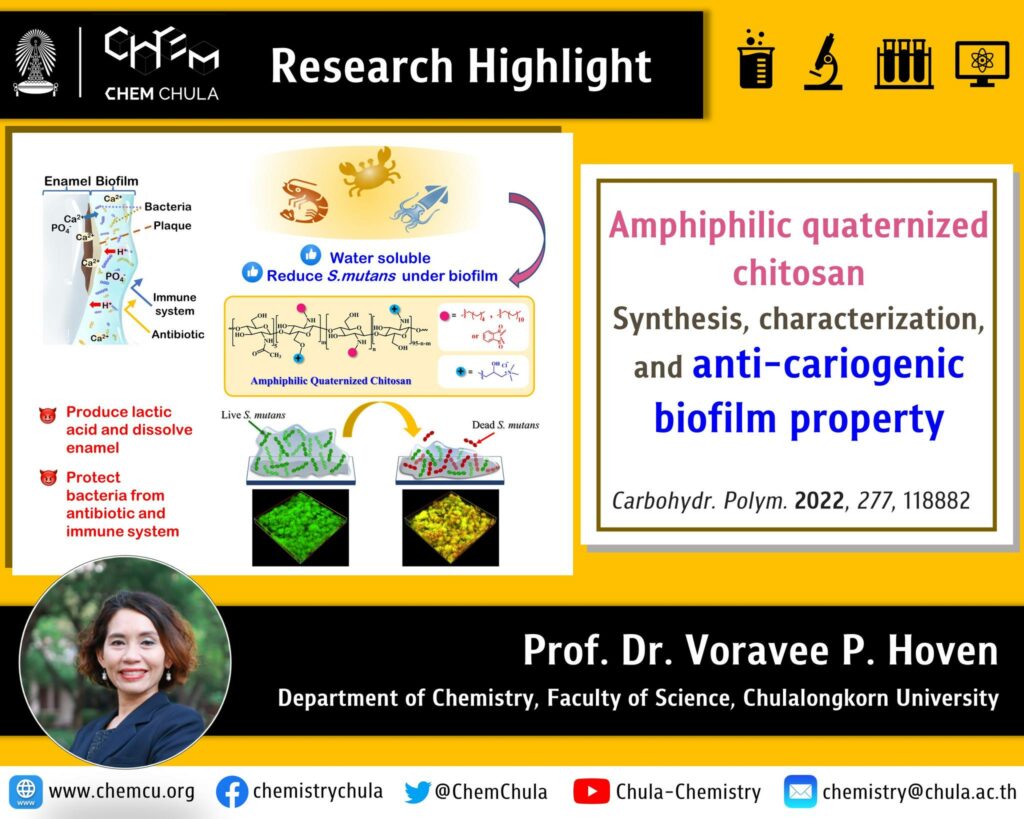Tooth decay is a common oral disorder. It is mainly caused by bacteria aggregation on the tooth surface, leading to biofilm formation, appearing as dental plaques. Bacteria under the biofilm are protected from the harsh environment like acid-base and antibiotics. Lactic acid is also produced from bacteria and demineralize calcium out of the tooth enamel leading to caries. Treating bacteria under biofilm requires professional treatment. Higher concentration of antibiotics to treat the biofilm than planktonic bacteria is necessary which may lead to antibiotic resistance. Our research group is interested to develop effective anti-cariogenic biofim agent from chitosan, which is a derivative of chitin, a natural polysaccharide from marine origin such as shrimp shell. Amphiphilic chitosan having both positively charged and hydrophobic entities would improve aqueous solubility and biofilm penetration. The developed amphiphilic chitosan derivatives cannot only reduce the viability of Streptococcus mutans (S. mutans), the pathogen causing caries in both planktonic form and those under biofilm but also biofilm mass. The equivalent performance to that of Chlorhexidine, the commercial chemical-based antimicrobial agent, demonstrates its potential to be used as an effective naturally derived anti-cariogenic biofilm agent for aqueous-based oral care products.
- Voravee P. Hoven
- Tinnakorn Phuangkaew
- Nadda Booranabunyat
- Suda Kiatkamjornwong
- Panida Thanyasrisung

